How to have a bird-friendly visit to the beach
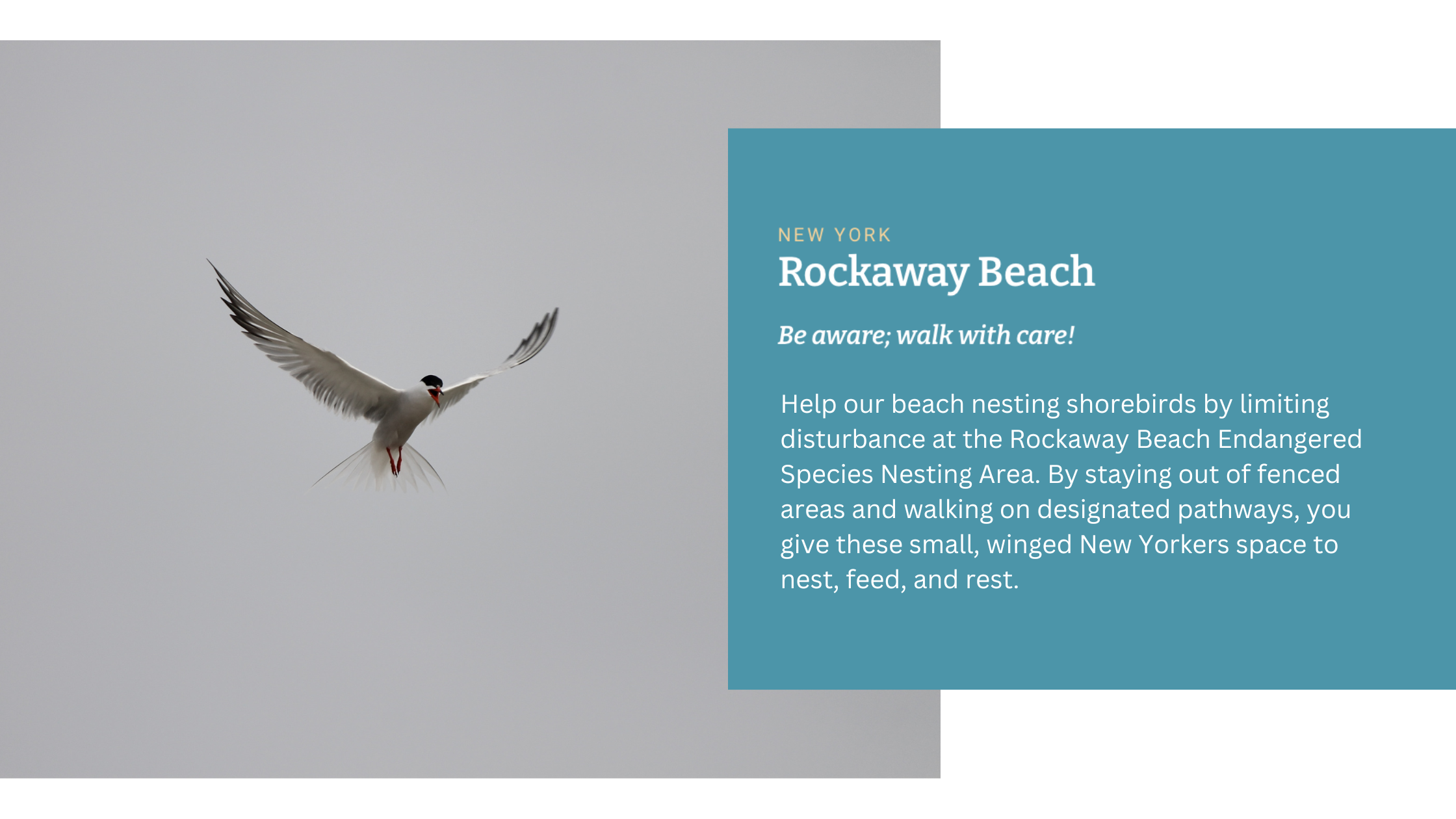
Be aware; walk with care!
While in the boundaries of the Rockaway Beach Endangered Species Nesting Area, be sure to look for signs directing you to open pathways for shoreline access. Be aware these pathways may temporarily close to give shorebird families a safe space to care for their eggs and chicks. The shoreline provides these growing families with all the food they need.
Less human disturbance can lead to a shorter and more successful nesting season. When chicks fledge successfully on the first nesting attempt, areas of the beach can re-open sooner.
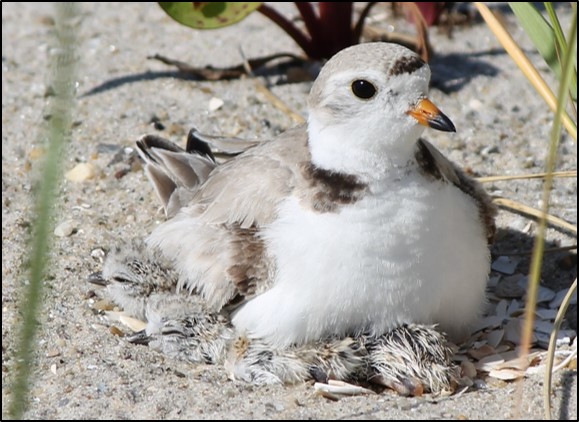
Piping Plover with chicks on Rockaway Beach | NYC Parks
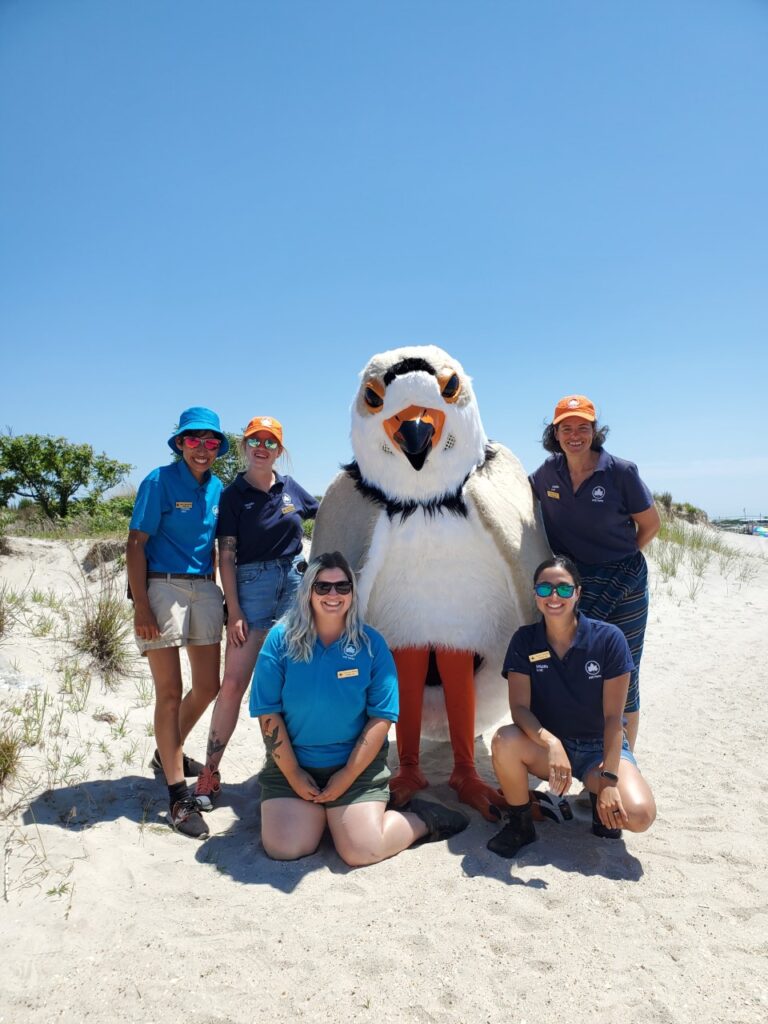
Rocky Piper | NYC Parks
You can help by spreading the word!
On your next visit to Rockaway Beach, look for our mascot friend Rocky Piper! Rocky will be out on the boardwalk this summer. Share a photo of you together on our page, and share this website with a friend or family member.
Thank you for your support in protecting our avian neighbors.
Take the pledge to coexist with wildlife!
Join us June 29, 2024, for our annual Shorebird Festival! Check for event flyers at the Community Building at Beach 44th Street and your local boardwalk parks. For more wildlife-related events, visit the New York City Department of Parks & Recreation website.
Rocky Piper Sightings
An important place for birds
Since 1996, Piping Plovers have been nesting at Rockaway Beach. Each summer, we see over 15 pairs of Piping Plovers, 30 pairs of American Oystercatcher and hundreds of terns and skimmers. The majority of these beach nesting birds come to the Arverne-Edgemere section of Rockaway Beach. The habitat available here allows the Piping Plover and other threatened shorebirds and plants to have a home for the summer in NYC.
Shorebirds face many challenges in addition to habitat loss like climate change, predation, and human disturbance. Rockaway Beach provides a safe haven for shorebirds to raise their families and improve the survival of their species in NYC for generations to come.
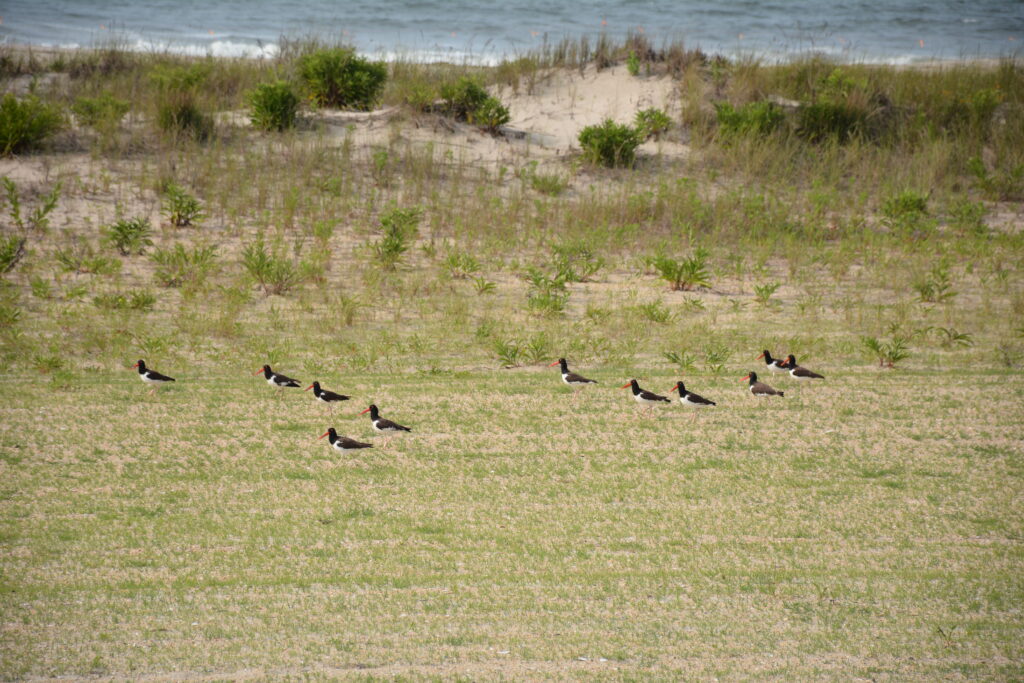
American Oystercatchers | NYC Parks
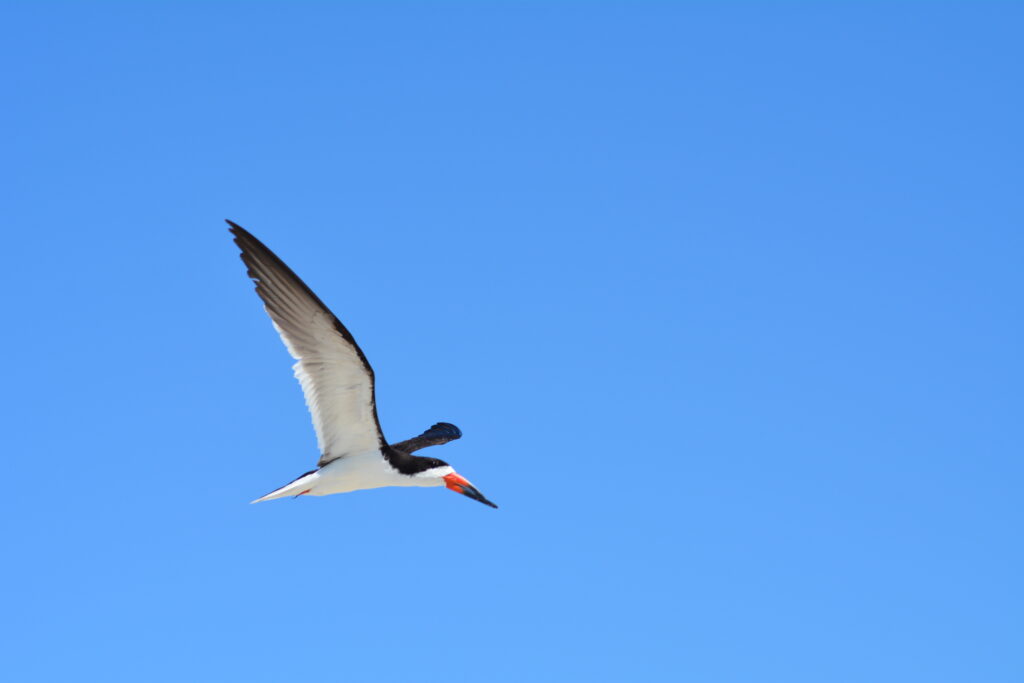
Black Skimmer | NYC Parks
Activities that seem harmless, like kids chasing birds, can actually cause a lot of distress to shorebirds. Next time you are at the beach, watch out for these signs that a bird is disturbed:
Did the bird fly away when you approached it?
Did the bird stop feeding and start walking away or look at you on alert?
Did the bird call out or act like it was injured to draw you away from its young?
If you noticed any of these bird behaviors, then you are probably too close. Try rounding your path to walk farther around the flock or the individual bird.
Home Sweet Home
The beach is a place for birds and people
Contact Information
Learn more about Rockaway Beach
- Check out the Rockaway Beach and Boardwalk
- Prepare for your visit to Rockaway Beach by learning more about the beach rules
- Learn more about Piping Plovers at Rockaway Beach and the Endangered Species Nesting Area and how NYC Parks protect rare and at-risk wildlife
- Learn more about the NYC Plover Project
